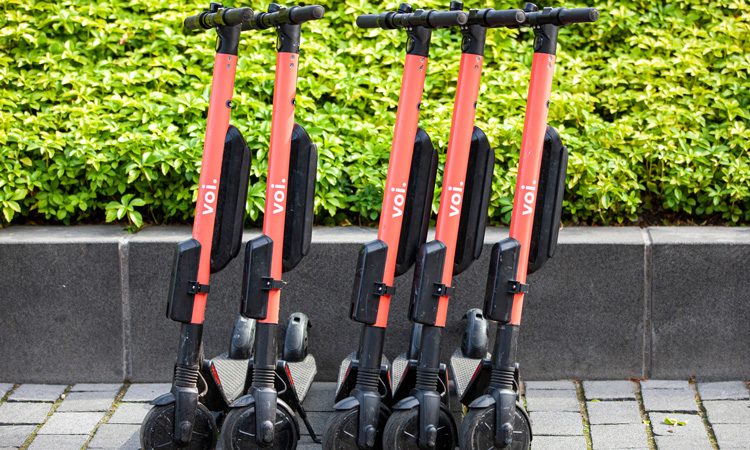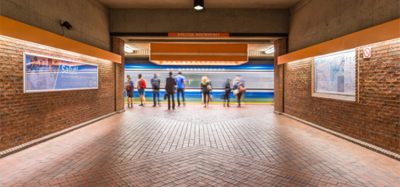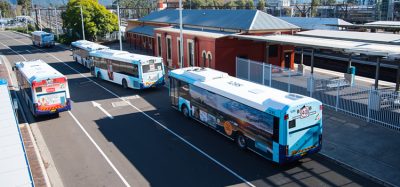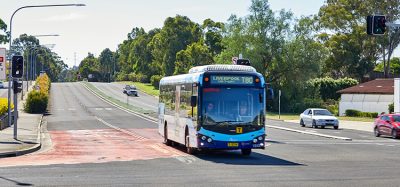Voi launches Cities Made For Living vision statement
- Like
- Digg
- Del
- Tumblr
- VKontakte
- Buffer
- Love This
- Odnoklassniki
- Meneame
- Blogger
- Amazon
- Yahoo Mail
- Gmail
- AOL
- Newsvine
- HackerNews
- Evernote
- MySpace
- Mail.ru
- Viadeo
- Line
- Comments
- Yummly
- SMS
- Viber
- Telegram
- Subscribe
- Skype
- Facebook Messenger
- Kakao
- LiveJournal
- Yammer
- Edgar
- Fintel
- Mix
- Instapaper
- Copy Link
Posted: 16 June 2022 | Intelligent Transport | No comments yet
Adopting a research-based approach, Voi outlines its vision of creating cities made for living by helping reduce car dependency in cities and returning urban spaces to the people who live in them.


Voi Technology has announced that it has outlined its vision to inspire decision-makers and citizens on how cities can be transformed into places to actually live in, in a Cities Made For Living vision statement. Furthermore, the company articulates an end goal of the micro-mobility movement to re-invent public transport for a future of shared mobility.
The vision statement takes a research-based approach to explain how shared mobility, especially micro-mobility, can help cities overcome a century-long planning bias toward private cars. Co-authored with Danish-based JAJA Architects, specialists in urban planning and mobility, the vision statement re-imagines and visualises public spaces in cities across Europe, including Voi’s hometown, Stockholm, as well as Barcelona, Berlin, Copenhagen, Helsinki, Liverpool, Marseille and Oslo.
“For over a century, we’ve given our towns and cities over to private cars at huge costs to our health, our mind and our climate. The science is clear that reaching the goals of the Paris Agreement requires far more transformative actions to change mobility, than switching to electric cars. The change we need to see requires a systemic shift and brave politicians to make bold decisions for the future, like Anne Hidalgo has done for Paris. Towns and cities have a unique opportunity, and with our vision statement we’re hoping to open people’s eyes to what’s possible for our future,” said Fredrik Hjelm, Co-Founder and CEO of Voi.
Voi’s vision statement follows calls from early 2022 from the Intergovernmental Panel on Climate Change (IPCC) that there need to be transformative changes to the transport sector if global warming is to be limited to 1.5°C by 2050.
“As the report shows, there are huge benefits to re-imagining our public spaces with a focus on shared mobility as it gives us more space for social activities, greenery and creates safer cities in the process too. Showcasing these benefits is crucial as it changes the conversation about sustainability from ‘what do I have to give up?’ to ‘what can we get in return,” said Robert Martin, Head of Mobility at Jaja Architects.
New report from Superpedestrian identifies solutions to deliver better integrated transport
Cities need to be adapted for more walking, biking and public transport, says the IPCC, while acknowledging that shared mobility can be deemed as a part of the public transport system, “in so far as it is accessible to most transport users and does not require private asset ownership”.
“Tech has proven to be an enabler for scaling systems with shared micro-mobility, integrating with traditional public transport networks and ultimately re-inventing what public transport is. We need to think new to challenge car dependency in cities, and this means bringing new modes that make public transport networks more flexible,” said Hjelm.
With this vision statement, Voi has also produced its first environmental report, presenting its environmental targets and current status, including green operations, circular vehicles, sustainable sourcing and car replacement. It also presents a third-party verified lifespan report of micro-mobility vehicles.
Alongside this, Voi is now ISO 14001 certified in Spain, Italy, Norway, Denmark and the UK and is in the progress of becoming certified in all other markets. This means that the operator’s environmental management systems in these countries are designed and implemented to the highest environmental standards. Voi’s Environmental Action Plan is governed by its ISO 14001 certified Environmental Management System.
Related topics
Air Quality, Alternative Power, Mobility Services, Passenger Experience, Public Transport, Sustainable Urban Transport
Related modes
Bikes & Scooters
Related countries
Sweden
Related organisations
Voi Technology
Related people
Fredrik Hjelm, Robert Martin








